Description
Tergecef 200Mg Capsule
Indications / Uses :
Capsule: Treatment of the following infections due to susceptible microorganisms: Acute bronchitis, acute exacerbations of chronic bronchitis, bronchiectasis with infection, secondary infections in chronic respiratory tract diseases, pneumonia, sinusitis, tonsillitis, pharyngitis, pyelonephritis, cystitis, gonococcal urethritis, cholecystitis, cholangitis.
Suspension/Drops: Treatment of the following infections due to susceptible microorganisms: Bronchitis, secondary infections in chronic respiratory tract diseases, pneumonia, otitis media, sinusitis, tonsillitis, pharyngitis, pyelonephritis, cystitis, scarlet fever.
Administration :
May be taken with or without food.
Contraindications :
Hypersensitivity to cefixime or other cephalosporins, to penicillins or any of the component of Tergecef/Tergecef OD.
Special Precautions :
Hypersensitivity Reactions: Careful inquiry should be made prior to cefixime therapy to determine whether the patient has had previous hypersensitivity reactions to cephalosporins, penicillins or other drugs. Use with caution in penicillin-sensitive patients since cross-hypersensitivity among ?-lactam antibiotics has been clearly documented and may occur in up to 10% of patients with a history of allergy to penicillin. In case of an allergic reaction to cefixime, the drug should be discontinued.
Serious acute hypersensitivity reactions may require treatment with epinephrine and other emergency measures including oxygen, intravenous (IV) fluids, IV antihistamines, corticosteroids, pressor amines, and airway management as clinically indicated.
Severe Cutaneous Adverse Reactions: Severe cutaneous adverse reactions including toxic epidermal necrolysis, Stevens-Johnson syndrome and drug rash with eosinophilia and systemic symptoms (DRESS) have been reported in some patients on cefixime. When severe cutaneous adverse reactions occur, cefixime should be discontinued and appropriate treatment and/or measures should be taken.
Clostridium difficile-Associated Diarrhea (CDAD): This has been reported with the use of nearly all antibacterial agents, including cefixime, and may range in severity from mild diarrhea to fatal colitis. It is important to consider this diagnosis in patients who present with diarrhea following administration of antibacterial agents.
Hemolytic Anemia: Cefixime should not be used in patients with a history of cephalosporin-associated hemolytic anemia since the recurrence of hemolysis is much more severe.
An immune-mediated hemolytic anemia has been observed in patients receiving cephalosporin antibiotics, including cefixime. Severe cases of hemolytic anemia, including fatalities, have been reported with cephalosporins in both adults and children. If a patient develops anemia anytime during, or within 2-3 weeks following the administration of cefixime, the diagnosis of a cephalosporin-associated anemia should be considered and the drug discontinued until the etiology is determined.
Periodic monitoring of signs and symptoms of hemolytic anemia, including measurement of hematological parameters or drug-induced antibody testing, where appropriate, is recommended.
Acute Renal Failure: As with other cephalosporins, cefixime may cause acute renal failure including tubulointerstitial nephritis. In case of renal failure, cefixime should be discontinued and appropriate therapy instituted.
Prothrombin Time: Cephalosporins may be associated with a fall in prothrombin activity. Patients who are at risk are those with kidney or liver impairment or poor nutritional state, as well as patients receiving a protracted course of antimicrobial therapy, and patients previously stabilized on anticoagulant therapy. Prothrombin time should be monitored in patients at risk and exogenous vitamin K administered as indicated.
Seizures: These have been reported with several cephalosporins (eg, cefuroxime, ceftazidime), particularly in patients with renal impairment in whom dosage of the drug was not reduced. If seizures occur during treatment with a cephalosporin, Tergecef/Tergecef OD should be discontinued and anticonvulsant therapy initiated as clinically indicated.
Other Precautions: As with other broad-spectrum antibiotics, cefixime should be given with caution in individuals with a history of colitis. The safety and efficacy of cefixime have not been established in patients with gastrointestinal malabsorption.
Prescribing cefixime in the absence of a proven or strongly suspected bacterial infection or a prophylactic indication is unlikely to provide benefit to the patient and increases the risk of antibiotic resistance.
As with other antibacterial drugs, long term or repeated use may result in overgrowth of non-susceptible organisms, including fungi.
Renal Impairment: Experience in children with renal impairment is very limited.
Use in pregnancy: (Pregnancy Category B). Reproduction studies performed in mice and rats up to 400 times the human dose have not revealed evidence of harm to the fetus. There are no adequate and well-controlled studies in pregnant women, and the drug should be used during pregnancy only when clearly needed.
Use in lactation: It is not known whether cefixime is excreted in human milk. Consideration should be given to discontinuing breastfeeding temporarily during treatment with cefixime.
Use in children: The safety and efficacy of cefixime in children <6 months have not been established. The incidence of gastrointestinal adverse reactions eg, diarrhea and loose stools, in children receiving cefixime suspension, was comparable to the incidence seen in adults receiving cefixime tablets.
Use in the elderly: Elderly patients are more likely to have decreased renal function, therefore, care should be taken in dose selection and renal function should be monitored.
Caution for Usage
Capsules should be taken out of the foil package at the time of oral administration. (It has been reported in other countries that mistaken ingestion of the foil package itself has led to such serious complications as mediastinia, etc due to punctured wound of the esophageal mucosa or perforations of the esophagus caused by hard and sharp pieces of the foil package).
Granules should not be stored suspended in milk, juice, etc

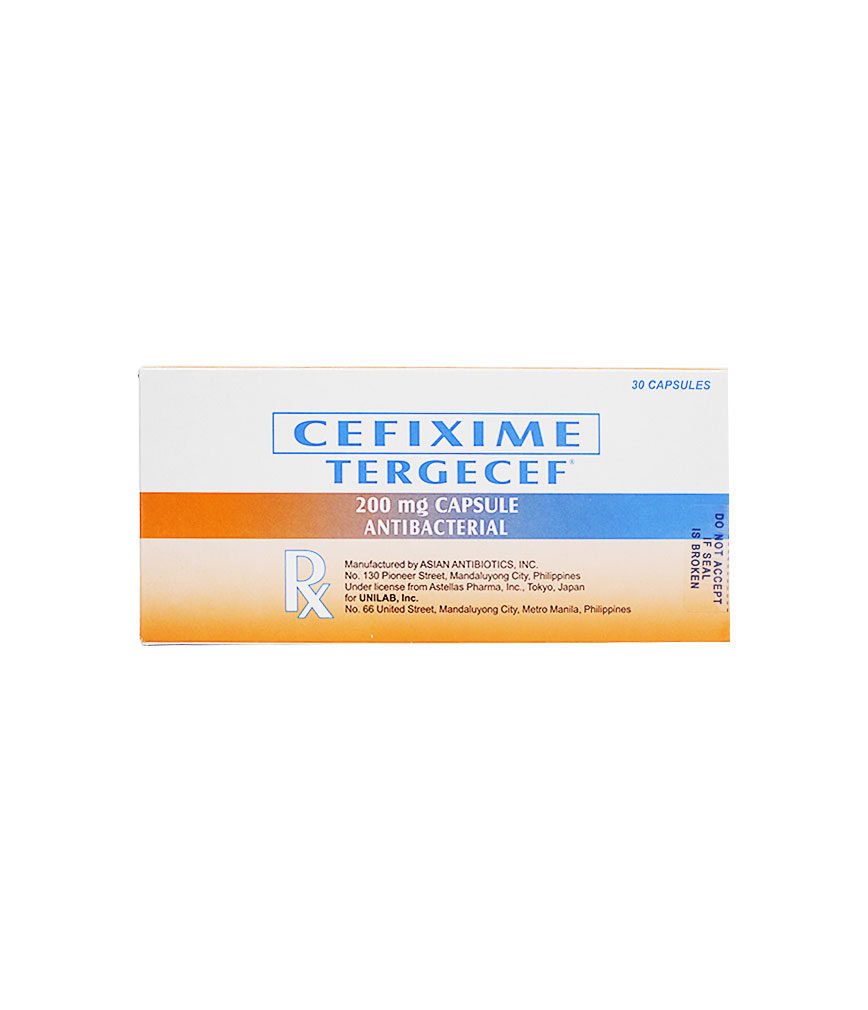
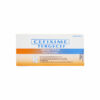
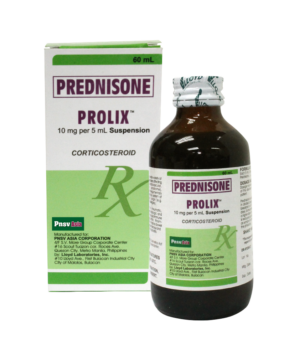

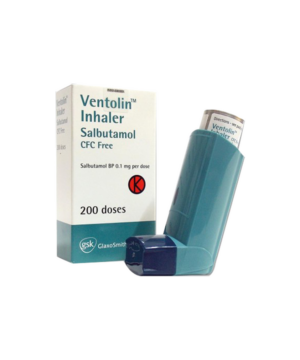
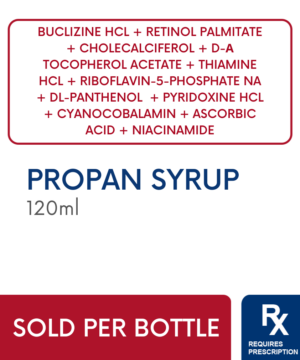
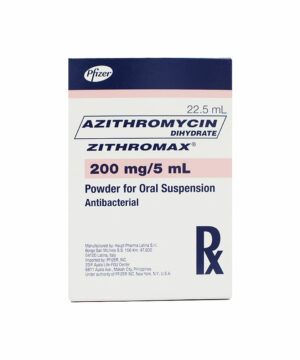
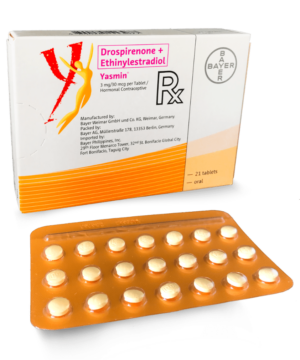

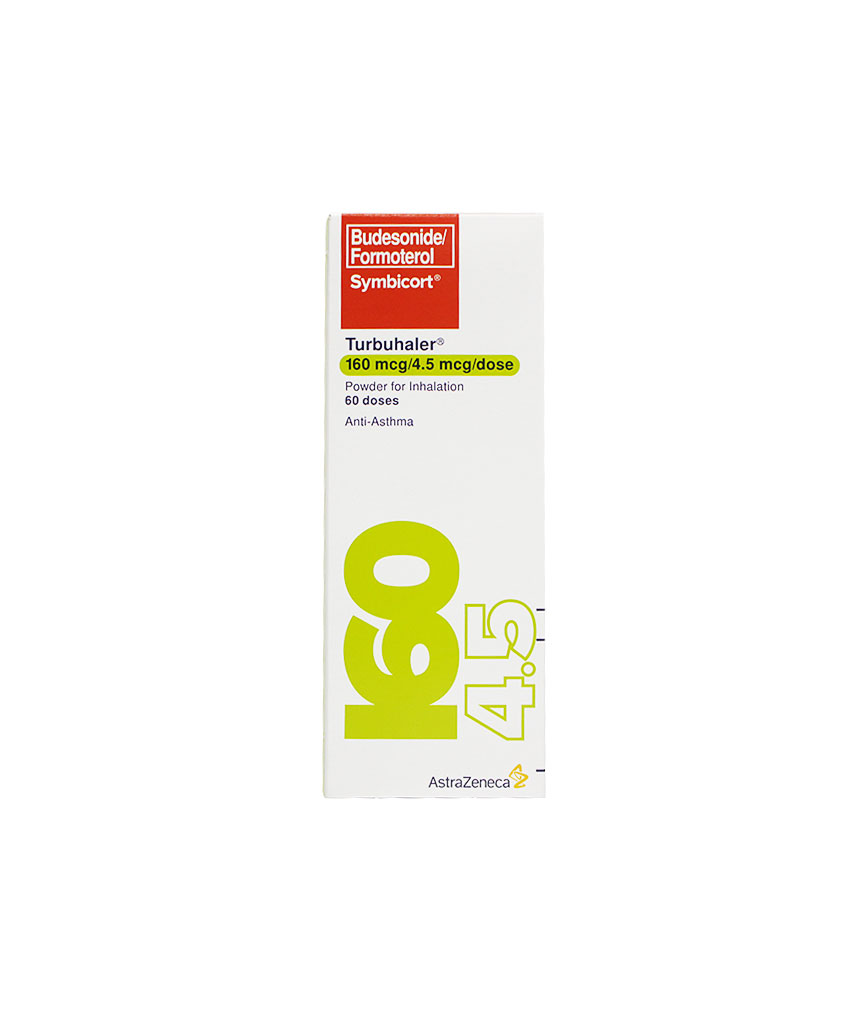



Reviews
There are no reviews yet.